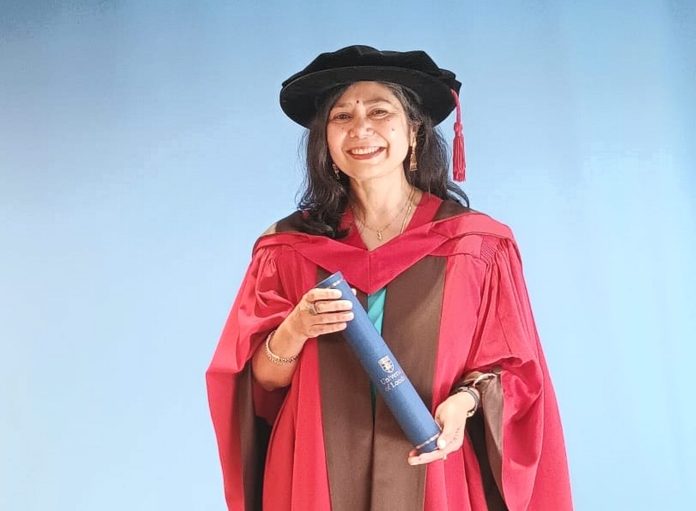London, May 1: Kolkata-born historian-author Shrabani Basu has been conferred an honorary doctorate by the University of London for her contributions to the field of literature and study of the shared British Indian history.
The London-based author of bestselling biographical books Spy Princess: The Life of Noor Inayat Khan and Victoria and Abdul: The True Story of the Queen’s Closest Confidant, made into an Oscar-nominated film starring Dame Judi Dench, received her honorary Degree of Doctor of Literature at a graduation ceremony on Tuesday.
Princess Anne — the Princess Royal, the sister of King Charles III — conferred the degree on Basu in her capacity as Chancellor of the university.
“In 2009, it was the University of London that gave us permission to build a memorial for World War II heroine, Noor Inayat Khan, in Gordon Square,” said Dr Basu, acknowledging the “humbling and proud moment”.
“The university recognised the importance of commemorating Noor Inayat Khan, who was barely known at the time. It was a memorable day when the bust was unveiled in 2012 by Her Royal Highness, the Princess Royal. Today, the memorial is visited by people from around the world, and Noor’s story is well known,” she said.
In her address at the ceremony, the history graduate from St. Stephen’s College in Delhi University traced her journey from India to the UK in the late 1980s as a journalist when she encountered the many hidden gems that found their way into her books.
“For me, as an author, telling the stories of Indians in the First and Second World Wars has been a privilege. Many of the South Asian diaspora in Britain have ancestors who served in the war. Most know nothing or very little about them. I have seen first-hand how it energises them when I talk about it. It gives them a connection, a stake in the system, a sense of inclusion,” said the author of For King and Another Country: Indian Soldiers on the Western Front, 1914-18.
She also referenced the importance of the study of the Empire in UK schools as a binding and uniting force.
“Much has been debated about the teaching of the Empire in schools. I see this not as something divisive, but one that brings people together and promotes an understanding of each other’s culture and histories. Our shared future is, after all, based on our shared past,” said the writer, in her early 60s.
In the university’s citation for their newest honorary doctorate, Pro Vice-Chancellor Professor Mary Stiasny described Basu as a ‘thought leader’ on India and the British Empire.
“A journalist, Sunday Times bestselling author and historian, Shrabani’s work combines her twinned passions of journalism and history and often centres on British rule in India, exploring the past through the lens of hidden stories and marginalised voices,” said Stiasny. (Agencies)
Trending Now
E-Paper


